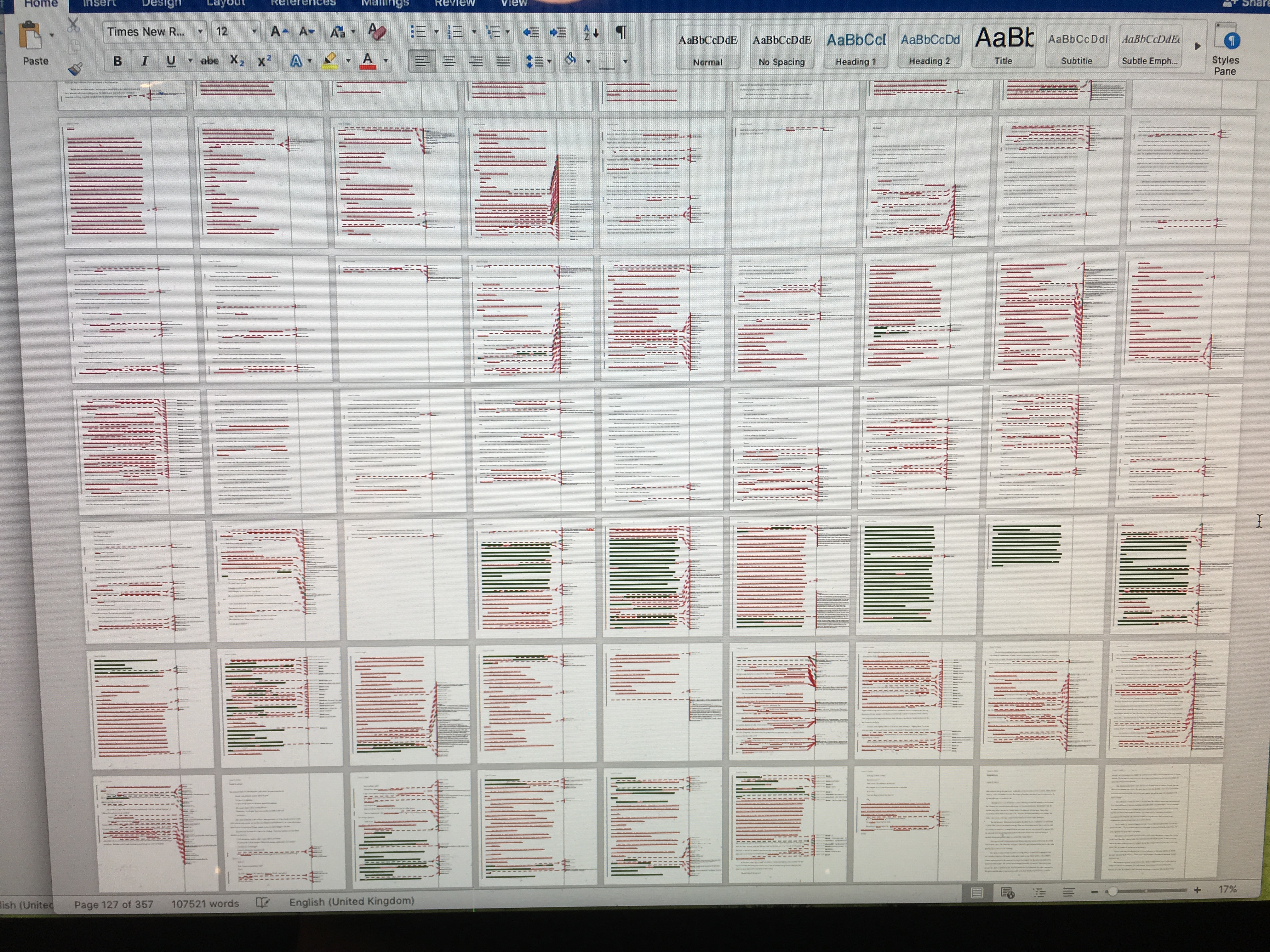Claudia Cruttwell takes some time away from yet another re-write to provide an account of her relationship with the editing process...

‘The first draft of anything is shit.’ So, apparently, said Hemingway. A misconception held by many inexperienced writers is that the first draft accounts for the majority of the work involved in writing a novel. But, for most people, this is only the beginning.
For me, the first draft is an un-crafted piece of work. It’s not where I strive to write my best prose. Instead, it’s where I tell myself the story. It’s where I put my premise to the test and where I find out whether the things I want my characters to say and do coincide with what they want to say and do. It’s where some ideas fall by the wayside and others come to the fore. It’s where I find out what my story is really about. Once I’ve made that key discovery, I go back to the beginning and re-tell the story for the benefit of my reader.
I’ve been working on my current novel, a psychological thriller, for around three years now. I sent my agent what I thought was a finished draft a year ago. Her response was encouraging, but she felt it needed more work. Deep down, I knew this to be true. As writers, we generally know when something’s not quite there. We hope the flaws will go unnoticed, but, inevitably, we get found out. Her insightful feedback was enough to show me where the faults lay, but it was up to me to determine how to fix them. I set about a major overhaul. I discarded my two alternating first-person narrators in favour of a third person limited point of view. I deleted vast swathes of backstory and rigorously attacked every hint of ‘telling’ with a machete. All of this equated to the loss of around 30,000 words, a third of my novel. I began rebuilding my decimated novel by exploring the central relationship more deeply, by developing two minor characters and giving them more pivotal roles in the plot, by introducing more in the way of dramatic incident and twists and by incorporating a new, major reveal.
At the end of this arduous process, I sought feedback from three sources: my regular group of writing friends, who’d read the previous draft; a writer I’d never met before with whom I did a novel swap; and a professional editor.
My writing group were unanimous in their opinion that this draft was an improvement, while my novel swap reader gave me some invaluable line edits and advised me to change my title (which, she said, sounded more like erotica). The professional editor suggested some tightening of the narrative structure to provide a more obvious thread throughout the novel. He also drove home to me the importance, in this genre, of making sure everything happened for a reason. In literary novels, chance can play a significant role. In a thriller, each development has to be pinned down to cause and effect.
Did I act on every piece of advice I received? Not at all. There were several suggestions that I chose to ignore. You have to rely on your own instincts and judgement, otherwise the work becomes a mish mash of other people’s ideas.
At last, I was able to settle down to the final stages of re-drafting, which is, for me, the most satisfying, rewarding part: refining the prose, perfecting the dialogue, enhancing the foreshadowing. But, when to stop? Once the edits boil down to obsessive tinkering, I think it’s time to let it go. To quote Hemingway once again: ‘Finishing is what you have to do. If you don't finish, nothing is worth a damn.’
Claudia Cruttwell graduated from the MA in Creative Writing at Brunel University and is currently working on her second psychological thriller. She also provides editorial reports on novel manuscripts and blogs at www.claudiacruttwell.com
Comments